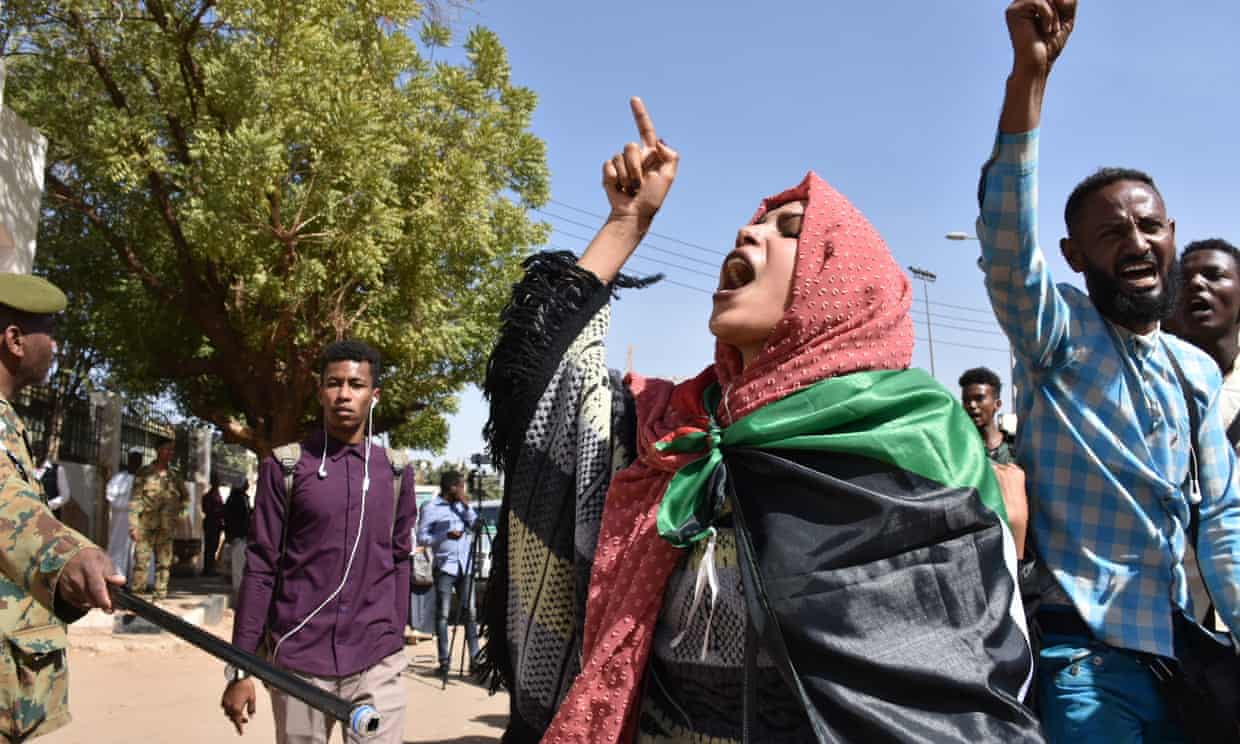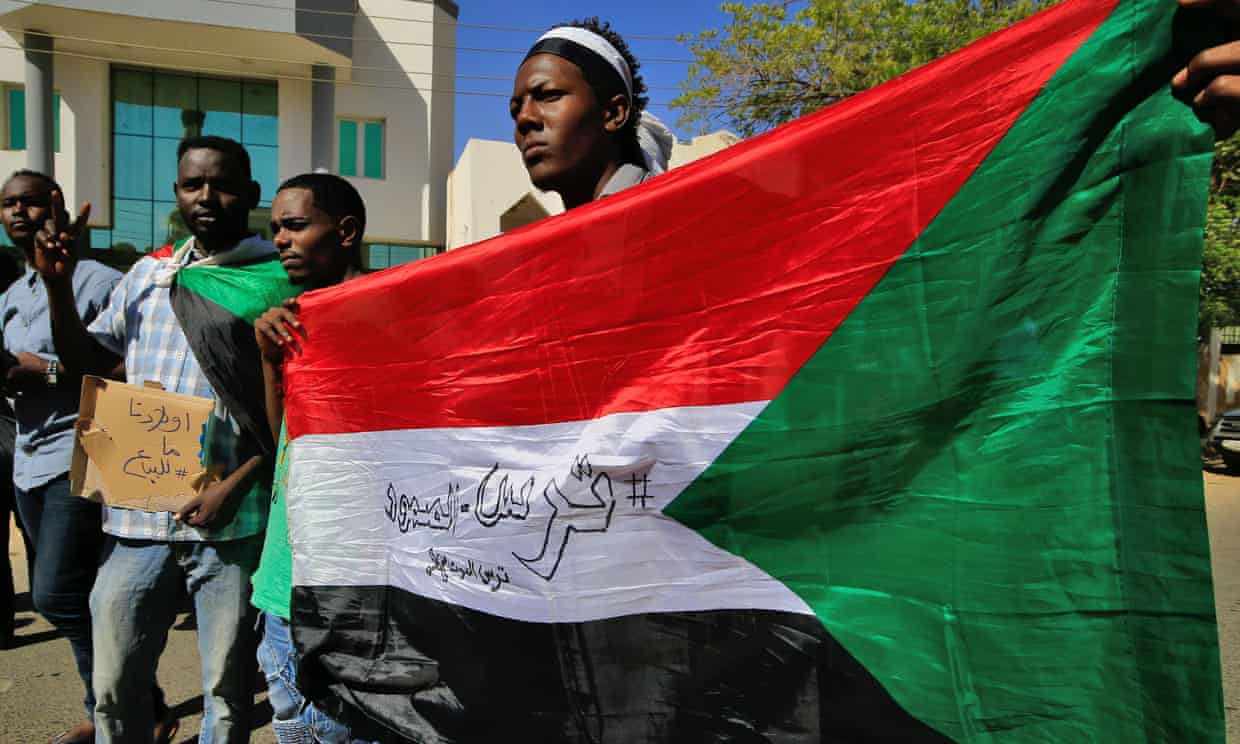
Employment
Sudan accused of failing men who say they were duped into working in Libya
Families protest amid claims men who went to work in UAE were given military training and then sent to Libya to guard oil fields
by Kaamil AhmedSudan’s government has been accused of failing young men who claim they were tricked into guarding Libyan oil facilities by a security firm from the United Arab Emirates.
Families have been protesting outside the UAE embassy and the Sudanese foreign ministry in Khartoum over the past week, demanding action after their relatives were recruited by a company that they say offered jobs as security guards in the Emirates, not Libya.
The foreign ministry announced on Tuesday that it was “closely following” the case and was communicating with the Emirati embassy, while information minister Faisal Mohamed Salih told reporters an “operations room” had been set up to help the men and examine their contracts.
“They went to the UAE and there they were offered two different contracts, one contract as a security guard in the UAE and [another] contract as security guards in petrol fields in Libya,” said Salih.
The men say they did not have a choice. One of the recruits, Hossam Saifuddin, said they had not been told where they were going.
“We asked where we are and they said Sweihan, in the eastern Emirates,” he said. “But after a while we saw written in the toilets that it was Benghazi, Libya.”
Families and activists have branded the government’s response weak, and are demanding the county does more.
Campaigner Mekki Ali Mahmoud, general secretary of the Sudanese Family Organisation, which has been working with the affected families, criticised the minister’s statement, saying it was only made because of increasing public pressure on the issue.
“Does this minister of the revolution and its spokesperson realise these youth were the fuel for this great revolution?” said Mahmoud, emphasising that Salih was appointed to a civilian cabinet formed after months of protests in 2019 forced out former ruler Omar al-Bashir.
“They went to earn a decent living in the UAE and not to fight in Libya or Yemen.”
The minister said in his press conference that some of the men have since returned to Sudan. The families counter that many remain.

Following the protests, about 50 young men were returned from Libya on Tuesday, the Sudan Tribune newspaper reported, immediately joining demonstrations outside the UAE embassy.
A livestream by Al Jazeera Arabic showed the young men surrounded by their luggage, staging an impromptu all-night sit-in outside the embassy’s gates.
Saifuddin said he applied for and was offered a job as a security guard in the UAE but, when he travelled there, the group was taken to a camp and given three months of military training.
After their training they were taken by bus to an airport, where they boarded a military plane.
When the men later realised they had been taken to Libya, he said they immediately asked to be returned home. But the company allegedly refused, and they have since been forced to live in harsh conditions in facilities that appeared to have been abandoned.
“The room are exposed, they have no windows, no doors, there’s cold from every direction [at night], then we burn in the intense heat in the morning,” he said.
His family, who have been involved in this week’s protests, said they just want the recruited men to be returned to Sudan.
“The company is responsible and the UAE is responsible,” said Saifuddin’s mother, who did not want to be named. “Against all of those people who are responsible, the people of Sudan must go out and protest.”
In its statement on Tuesday, the Sudanese foreign ministry emphasised it was a private company that had recruited the men and said it was keen to maintain its relationship with the UAE.
In November, a UN report estimated that roughly 1,000 Sudanese fighters were deployed to Libya in July from the Rapid Support Forces paramilitary headed by Mohamed Hamdan Dagolo, a former militia chief known as Hemedti with a reputation as one of Sudan’s most powerful commanders.
A lobbying contract signed by Hemedti in May 2019 offered Sudan military aid from the forces of the Libyan commander Khalifa Haftar, in exchange for Sudan’s military support.
The same firm previously represented Haftar and his allies, who have been running a rival government in eastern Libya and have been trying since April 2019 to take control of the capital, Tripoli.
“The initial plan was that the Sudanese troops would guard critical national infrastructure, thereby freeing up Haftar Armed Forces troops for offensive operations,” the UN report said.
Sudanese rebel groups from the Darfur region, which neighbours Libya, have also been operating in Libya in alliance with Haftar. The UN recorded their presence in Ras Lanuf, where Reuters reported that some of the Sudanese men recruited by the Emirati firm are located, according to their families.
Following Bashir’s ousting last spring, the UAE and its ally Saudi Arabia pledged $3bn (£2.3bn) to the country, a gesture seen by protesters as an attempt to prop up the military council against demands that it, too, should step aside.
They already had a strong relationship with the military council’s head Abdel Fattah al-Burhan and his deputy Hemedti, who had both recruited Sudanese fighters to support the Saudi-led coalition in Yemen.
In a recent interview with Al Jazeera, the head of the internationally recognised Libyan government in Tripoli, Fayez al-Sarraj, accused the UAE of interfering in Libya by supporting Haftar.